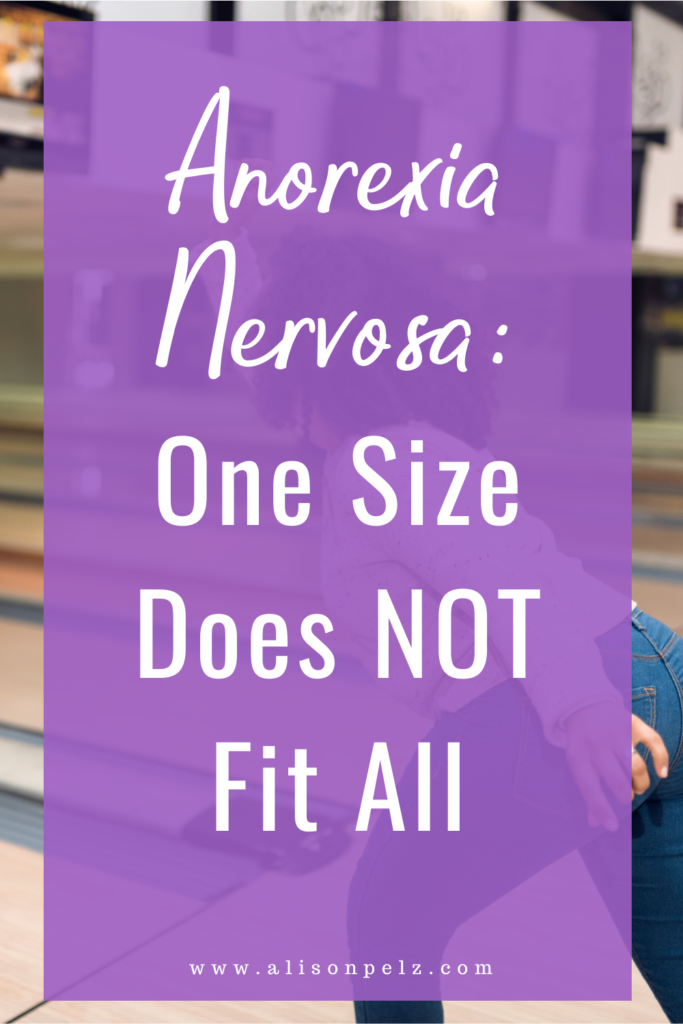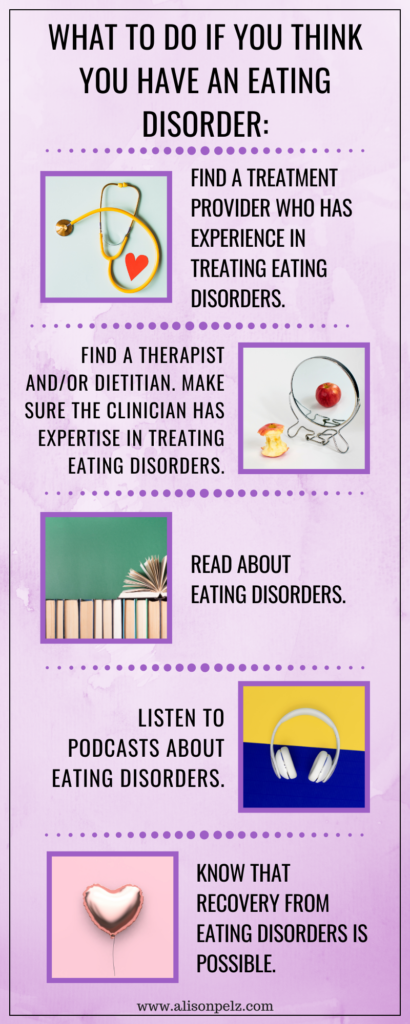Unfortunately, there are many incorrect assumptions associated with eating disorders. One I see a lot is the assumption that in order to have an eating disorder, particularly anorexia nervosa, one has to have very low body weight.
This is simply not true.
Sadly these assumptions block those suffering from eating disorders from getting the life-saving treatment they need.
In fact, most people with eating disorders don’t necessarily fit neatly into an eating disorder category.
Eating disorders are more about how the person relates to food, exercise, and body than what a person looks like.
Let’s take a closer look at an eating disorder called “Atypical” Anorexia Nervosa (AAN). I put the word atypical in quotes because it is my understanding that more people suffer from AAN than anorexia nervosa, so there is really nothing atypical about it. Basically, AAN is the same as anorexia nervosa with one exception – those with AAN don’t meet the criteria for being underweight like those suffering from anorexia nervosa. In fact, some with AAN may live in a large body.
Symptoms of ANN are exactly the same as anorexia nervosa. AAN includes significant caloric restriction, intense fear of gaining weight, and overvaluation of body size and shape (ie. evaluating self-worth based on weight and shape).
Typical signs of Atypical Anorexia Nervosa could include:
- Extreme concern about weight and shape
- Preoccupation and worry about food
- Restriction of total calories consumed
- Avoidance of eating certain types or categories of food
- Avoidance of social situations that involve food
- Misuse of exercise or overexercising.
Often the assumption is that only white, young, female, and very thin people experience eating disorders. Because of this assumption, many eating disorders go undiagnosed. It is not uncommon for people with eating disorders, particularly those who live in large bodies, to get prescribed weight-loss diets which actually makes the eating disorder worse.
Is AAN as dangerous or serious as other eating disorders?
All eating disorders can be harmful to both physical and mental health. Eating disorders can be associated with isolation, rigid thinking, poor self-esteem, anxiety, depression, poor focus, and sleep disturbance.
What to do if you think you have an eating disorder:
Because of the abundance of misleading and harmful nutrition, weight, and exercise information, sufferers of eating disorders are often led to believe that they can recover from their eating disorder on their own. Sadly, this often prolongs the eating disorder and the suffering. If you think you have an eating disorder, here are some next steps to take:
- Find a treatment provider who has experience in treating eating disorders.
- Find a therapist and/or dietitian. This can be a good place to start. In your search make sure the clinician has expertise in treating eating disorders.
- Read about eating disorders.
- Listen to podcasts.
- Know that recovery from eating disorders is possible!


